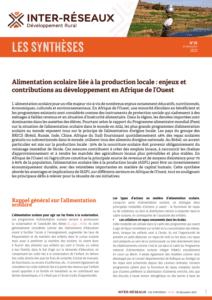Under the Agricultural Transformation Agenda (ATA), the government of Nigeria is implementing a new fertilizer program in which the government will withdraw from fertilizer marketing and distribution to promote the development of the private sector to take on these functions. We assess the impact of previous fertilizer subsidy programs on the private fertilizer sector as the basis for evaluating the new program. Using farm level data on fertilizer use in 2003, 2006, 2007, and 2010, we show that previous government fertilizer subsidy programs in Nigeria crowded out the private fertilizer sector to some degree. We find that one ton of subsidized fertiliz-er supplied by government reduced the demand for commercially supplied fertilizer by between 0.19 and 0.35 tons. The crowding-out effect of the subsidy was likely greater in states with higher state-level subsidy rates. Secondly, the subsidy reduced the open-market fer-tilizer price, possibly due to leakage of subsidized fertilizer into commercial channels. Thirdly, households which were likely to have access to subsidized fertilizer were closer to urban centers, as well as being headed by males with higher education. Finally, few farmers used both commercial and subsidized sources. Success of the new fertilizer subsidy scheme in Nigeria partly depends on effectively re-ducing the crowding-out of private input traders in the fertilizer market. This can be done not only through improved targeting of benefi-ciaries and ending the participation of government and its agencies in fertilizer marketing and distribution, but also by implementing ef-fective complementary policies for enhancing the development of private fertilizer suppliers.







